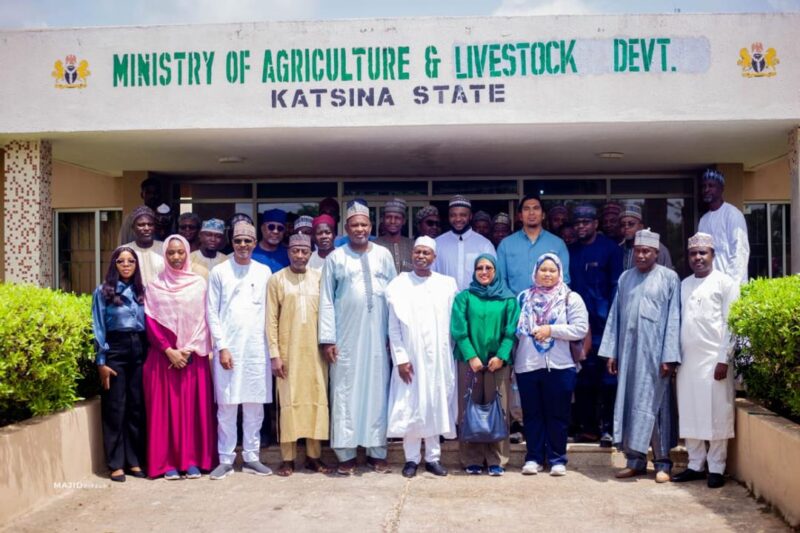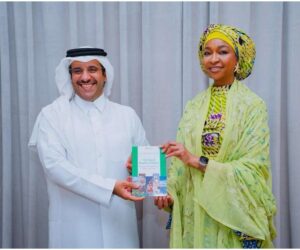As Nigeria intensifies its drive to diversify foreign exchange earnings, non-oil exports are increasingly taking center stage. The nation recorded a remarkable breakthrough in the first half of 2025 with non-oil exports valued at $3.225 billion. Yet, for all this progress, one vast opportunity presents itself- accessing the US$7 trillion+ global Halal economy guided by strict halal standards.

The global halal economy spans several industries- food and beverages, agriculture and agro-allied value chain, finance, pharmaceuticals, cosmetics, fashion, media, travel and tourism, and more. The certification standards of lawfulness, cleanliness, trust, ethics, and transparency have since been adopted by producers and suppliers of goods and services from the US, UK, Brazil, Australia, New Zealand to the Middle East and GCC. It thrives on processes set by leading leading Halal Certification bodies like JAKIM of Malaysia, SMIIC of Istanbul, GCC Accreditation Center (GAC) and World Halal Food Council (WHFC), without which, Nigerian goods will struggle to access markets in the Middle East and across the 57 Organization of Islamic Cooperation (OIC) countries. For Nigeria, unlocking this economy is not just an economic option, but a strategic necessity.
SPONSOR AD

At the forefront of this drive is Dar Al Halal Certification, an independent certification company with a bold vision of championing the entry of Nigerian products into the global halal market and positioning the country as a major player on the world stage. Dar Al Halal’s work goes beyond certification. It is building a trusted halal ecosystem in Nigeria by combining faith principles with modern quality control systems. Its initiative is backed by a panel of technical and Shariah auditors trained by Serunai Commerce, a Malaysian company duly accredited by JAKIM and a partner to the Islamic Development Bank (IsDB) through its Halal Centre of Excellence, to provide capacity building, training, and the development of Halal certification systems across multiple countries.

Raising the Bar with Global Standards
To ensure credibility, Dar Al Halal has adopted the Malaysian (JAKIM) halal certification model, benefiting from its over 50 years of regulatory expertise. Through its partnership with Serunai Commerce, Dar Al Halal certification intends on being the premier certification company in Nigeria.
Through training programs, site audits, and international exposure, it is grooming a new generation of halal inspectors, auditors, and quality control experts. Recent programs included site visits to facilities like Maidabino Farm, Al Dusar Tomato Processing Factory and The Farm (Feed Mill, Flour Mill and Diary Factory) in Katsina, giving participants firsthand experience in global best practices.

Why Halal Certification Matters
Halal certification is more than a religious label; it is a global recognized assurance of quality, hygiene and ethical production of the products and services we consume. From the animal slaughter to the safety of ingredients used in cosmetics and pharmaceuticals, Halal certification builds confidence for consumers that a product has undergone rigorous inspection and compliance. Importantly, halal certification is open to businesses of all faiths and for Nigerian exporters, the certification is a passport to 57 member countries of the Organisation of Islamic Cooperation (OIC) and beyond, including fast-growing Muslim consumer markets in Asia, Europe, and North America. Already, trade opportunities are emerging, with Saudi Arabia, Qatar, and the United Arab Emirates signaling interest in expanding imports from Nigeria. With halal certification, these products can enter and compete freely.
The Certification Process
Dar Al Halal makes the certification journey simple yet thorough:
- Submission of company and product information.
- Review of ingredients, supply chain sources, and manufacturing processes.
- Site inspection of facilities for compliance with halal standards.
- Audit and panel (technical and Shariah )decision on Halal.
- Issuance of certification, granting businesses the right to use the halal logo.
- Periodic audits, monitoring and renewals to ensure ongoing conformity.
This process not only builds consumer confidence but also raises the overall quality of Nigerian exports.
Conclusion
As Nigeria pushes to expand non-oil exports, halal certification offers a golden ticket to markets worth trillions of dollars. For Nigeria, embracing these standards is the key to boosting investor confidence and unlocking new markets for our people and has the unique opportunity to positioning itself as a leader in Africa’s halal economy—one that not only meets international standards but sets new benchmarks of excellence.
With Dar Al Halal Certification leading the charge, the future of Nigeria’s non-oil export looks brighter, and Nigerian exporters are better for it.












